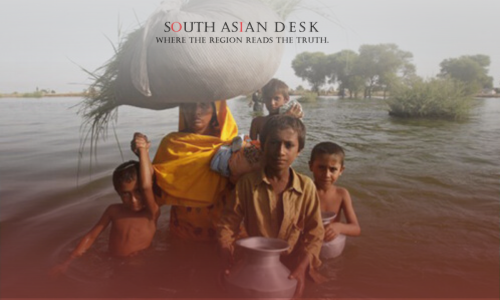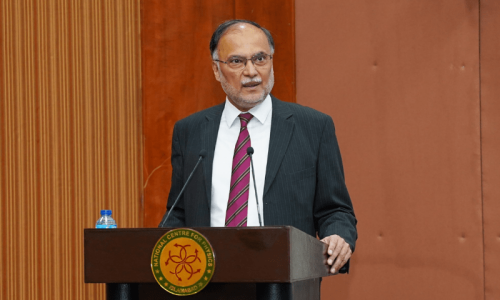The Punjab government has allocated Rs795 billion in its 2025-26 budget to advance the Climate Resilient Punjab initiative, representing 64% of the province’s Annual Development Programme (ADP). This significant investment aims to integrate climate adaptation and mitigation across various sectors, but questions remain about how these funds will be utilized and whether they will deliver meaningful outcomes.
The allocation is guided by a Climate Resilient Tagging Framework, which embeds climate-focused measures into development projects across agriculture, water management, urban infrastructure, and environmental protection. Of the total, Rs277.4 billion is designated for climate adaptation, Rs371.7 billion for mitigation, and Rs146 billion for environmental protection. Key initiatives include Rs5.7 billion for the Punjab Clean Air Programme to combat smog, with plans to establish 25 air quality monitoring stations at a cost of Rs3 billion. Additionally, Rs750 million is set aside to address stubble burning, a major contributor to air pollution, and Rs2.8 billion will fund afforestation efforts along linear plantations. The establishment of a Punjab Aqua Culture Authority, backed by Rs4 billion, and a Rs10 billion international-level Model Fish Market in Lahore are also part of the plan.
Beyond environmental projects, the budget supports agriculture through the Punjab Climate-Resilient and Low Carbon Agriculture Mechanization Project, which aims to boost productivity and resilience by modernizing machinery and training operators. Urban development efforts include upgrading water supply systems in Rawalpindi and solid waste management in Bahawalpur, benefiting up to 1.5 million residents. The Chief Minister Green Credit Programme, aligned with the Paris Agreement’s Article 6, seeks to monetize carbon credits, while a Rs45 crore Carbon Credit Compensation Programme in five districts incentivizes farmers for tree plantation.
Despite these ambitious plans, environmentalists express concerns over the lack of specific project details and the province’s history of underutilizing development funds due to weak implementation and limited transparency. Effective execution will rely on robust accountability mechanisms, including output-based budgeting and third-party validation, supported by partners like the World Bank and the Asian Development Bank. The government emphasizes a multi-sectoral approach, viewing climate change as a development and survival challenge that requires coordination across sectors and stakeholders.
Recent discussions on X highlight growing public interest in Punjab’s climate initiatives, with users noting the province’s leadership in sustainable agriculture and carbon finance. However, some express skepticism about the practical impact of such large-scale funding without clear timelines and measurable goals. As Punjab navigates rising temperatures, water scarcity, and extreme weather, the success of this Rs795 billion allocation will depend on transparent implementation and tangible results for its ecosystems and communities.
Published in SouthAsianDesk, July 6th, 2025
Follow SouthAsianDesk on X, Instagram and Facebook for insights on business and current affairs from across South Asia.




![Collage of COAS Field Marshal Munir [L] and US President Donald Trump. — ISPR/AFP](https://southasiandesk.com/wp-content/uploads/2025/06/18090415659519a-2.jpg)